Q-commerce v/s Kiranas
Will the trio 'Blinkit-Instamart-Zepto' mitigate potential regulatory risks?
Recently a report by FMCG distributor body ‘AICPDF’ became the talk of the town, which highlighted that as many as ‘2 lakh kiranas shops’ have shut down due to the rapid rise of quick commerce (Qcom). Even though this debate around the Qcom players eating into the share of kirana shops has been ongoing since quite some time, but with this report out quoting a quantifiable impact of ‘2 lakh’ shops shut gathered high amount of attention from public and political circles.
“Quick commerce has been active and aggressive for approximately the last 8 months.”
- Dhairyashil Patil, National President of AICPDF (Oct ‘24)
This is certainly true, as since the start of 2024, all Qcom players have become increasingly aggressive. Zepto has successfully raised approximately $1 billion in funding in 2024 alone. Observing the store expansion of market leader Blinkit, it is evident that they are pressing the pedal and expanding their reach at a rapid pace:
Their store count has almost doubled, their gross order value (GOV) has more than doubled. Similarly, Zepto was able to raise its GOV from $1 Bn in Feb’ 24 to $1.5 Bn in July ‘24 and has now hit $2 Bn in ARR (Annual Recurring Revenue)! Further, they plan to open 100s of dark stores every quarter by burning a lot of cash. This clearly shows the size of players is growing at accelerated pace and as they get bigger, the impact on other sales channels (especially offline) is quite evident.
“We have seen disproportionately higher growth in organized channels viz. MT, Ecom & Qcom, which has led to increase in inventory levels in General Trade (Kiranas)...”
- Dabur (Quarterly Update - Oct ‘24)
With market leaders such as Blinkit, Zepto, Instamart, and BBNow aiming to deepen their presence in Tier 1 cities, alongside new entrants like Flipkart’s Minutes, these companies are ensuring they cover all relevant high-density pin codes, where business economics make the most sense (e.g., high average order value, repeat orders). Despite this focus, they are not hesitating to expand into Tier 2 cities, with most industry players convinced of the potential and profitability there as well. For instance, Blinkit is now available in 44 Tier 2 cities, including Haridwar, Jodhpur, Mohali, and Rohtak.
Note: If our emails end up in the ‘promotions’ tab, please move them to inbox so you don’t miss out. Don’t forget to subscribe and join 3K+ readers!
“Thankyou for killing mom & pop shops across India”
In their Q1 FY25 results, the founder of Blinkit sought to distance the company from any potential adverse impact their growth might have on offline commerce in the country:
“We know that we are not taking share away from kiranas, or from value focused large retail players like DMart”
Public reactions on social media regarding the rise of Qcom have largely been marked by surprise, as users continue to observe the addition of newer SKUs in their offerings. Startup enthusiasts have been seen celebrating and congratulating the founders on their festive updates, highlighting the rapid increase in sales.
However, recently, some reactions have shifted with changing sentiments. Browsing the comment sections on posts by Qcom founders about their expansions reveals that these companies are increasingly viewed as ‘culprits’ responsible for harming the livelihoods of small shop owners in cities. For instance, when Blinkit’s founder, Albinder Dhindsa, announced the launch of a dark store in Ajmer (Rajasthan), one notable comment directly accused Blinkit and other Qcom companies of destroying mom-and-pop stores in India.
Similarly, a closer look at the comments section on Zepto founder Aadit Palich’s posts about impressive sales growth during Diwali 2024 reveals a growing number of negative reactions concerning the impact of these companies on offline retail. This shift in sentiment might explain why Blinkit’s founder chose not to share their sales growth updates this Diwali season, despite a history of doing so around major festivals. In 2023 and throughout key festivals in 2024, they were notably active, sharing analytical charts to boost engagement. However, Diwali 2024 marked a departure from this trend.
With the noticeable absence of posts around Diwali 2024, one might also wonder: is their sales momentum slowing down? This seems highly unlikely, considering the last quarter's growth was 130% year-over-year, and the continued opening of new stores and expansion into new cities suggests that momentum is likely to persist. The more plausible reason as mentioned is the growing awareness of the intensified competition faced by small offline retailers and shopkeepers, who struggle to match the speed and efficiency of larger players—a challenge emphasized by the recent retailers' association report as well as the Datum Intelligence report.
Is the Government action coming?
According to the latest Datum’s data, over $1.28 billion in sales from kiranas have shifted to quick commerce, accounting for approximately 21% of the total gross order value (GOV) on platforms such as Blinkit and Zepto.
Notably, around 5% of respondents in Datum’s survey indicated that they have stopped buying groceries from kirana stores altogether. These stores are projected to face the greatest decline in sales as customers increasingly favor more convenient and faster shopping options.
Clearly, the impact on India's 13 million Kirana stores is expected to be significant, which could suggest a high likelihood of government intervention. However, as of November 2024, such intervention has been minimal, and key government voices have not been overtly critical of the rise of Q-commerce. Instead, their approach has been more suggestive and advisory.
Quick Commerce must collaborate with Kirana stores for last-mile delivery if they want to sustain themselves in the long run and avoid losses.
- Shri Piyush Goyal, Minister of Commerce & Industry (Sep ‘24)
While Piyush Goyal has been highly critical of e-commerce platforms for engaging in “predatory pricing” and defends Indian businesses that similarly impact small sellers and enterprises, he has emphasized that the government supports technological advancement but expects e-commerce companies to adhere to the law. More than just being critical of e-commerce, he has actively promoted the government’s ONDC (Open Network for Digital Commerce) initiative, which he believes has significant potential for future growth and could provide new opportunities for small retailers.
In an interesting note, just the day after slamming Amazon at an event in Aug ‘24, he made his tone softer saying this:
“Online commerce has tremendous benefits in terms of convenience, speed and gives comfort at your homes, etc. All we desire is a fair play & honesty. We want to encourage online to grow. No intention to stop online.”
Hence currently there is a status quo and a lack of clear messaging from the government on how it wants the Qcom industry to evolve, which ultimately works out as a favorable outcome for the industry.
Quick Commerce: The Masiha?
Blinkit, Swiggy Instamart, and Zepto have made efforts to present themselves as ‘enablers of the local economy’. In the following paragraphs, we will highlight a few examples of this. Their goal is to integrate themselves into both the local economy and culture to mitigate any potential backlash they might face from general public due to the disruption they cause.
Integrate themselves in the Local Economy
In a bid to support the local economy, Zepto announced a collaboration with over 500 local artisans to sell handcrafted Diwali diyas (earthen lamps). The company highlighted its partnership with 50 families from the Prajapati clan, a community of Kumhars (potters), to support their livelihoods, which heavily depend on festivals like Diwali. Co-founder Aadit Pachalia shared shared a video on LinkedIn, showcasing key aspects of this collaboration with the community.
In the video, local artisan Pradeep Kumar discusses the community’s concern about the growing influence of Chinese goods during festivals like Diwali, as many customers prefer them. However, Zepto turned this concern into joy for the artisans. Watch full video here.
Blinkit's recent expansion in South India (as also covered by us in our previous blog) has been strongly focused on promoting local economy products and brand collaborations. Here's a snippet from their launch in Kochi, Kerala. This approach also helps them onboard local customers more quickly.
Integrate themselves in the Local Culture
To celebrate Ganesh Utsav 2024, Swiggy Instamart installed a unique modak dispenser on Carter Road, Mumbai, offering free modaks to passersby as part of a creative out-of-home advertising initiative. Similarly, Zepto’s founder keeps sharing pictures of Ayudha Puja & Ashtami celebrations from their stores. Overall these helps draw eyeballs and builds a sense of culture integration of business in a society.
What we think?
The possibility of a regulatory risk materializing as a head wind in future is real, but as of not there aren’t any material signs yet. We should also note that Qcom is a ‘labor-intensive’ way of doing commerce which helps create more jobs and benefits the consumer in a big way (no middle man which would keep prices down in long term, along convenience it brings to the table). The entry of Tatas (via BB Now) and other big names with deep political links could potential lead to higher competition intensity in future but can reduce the risk of an industry wide sweeping regulation that disrupts the Qcom industry. We shall continue to track any emerging developments closely.
Finding Outperformers is a free-to-access website, and each blog takes a month of effort to finalize. If you've read this far and you find our research useful, consider supporting our efforts by contributing here:
Connect with me (Aditya here) and with Harsh here. Read out previous blogs on Quick commerce & Zomato below:
Disclaimers-
We are not a SEBI registered advisors; personal investment/interest in the shares exists for the company mentioned above; this isn’t investment advice but our personal thought process; DYOR (do your own research) is recommended; Investing & trading are subject to market risk; the decision maker is responsible for any outcome.

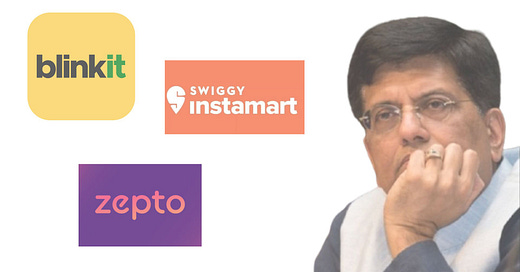



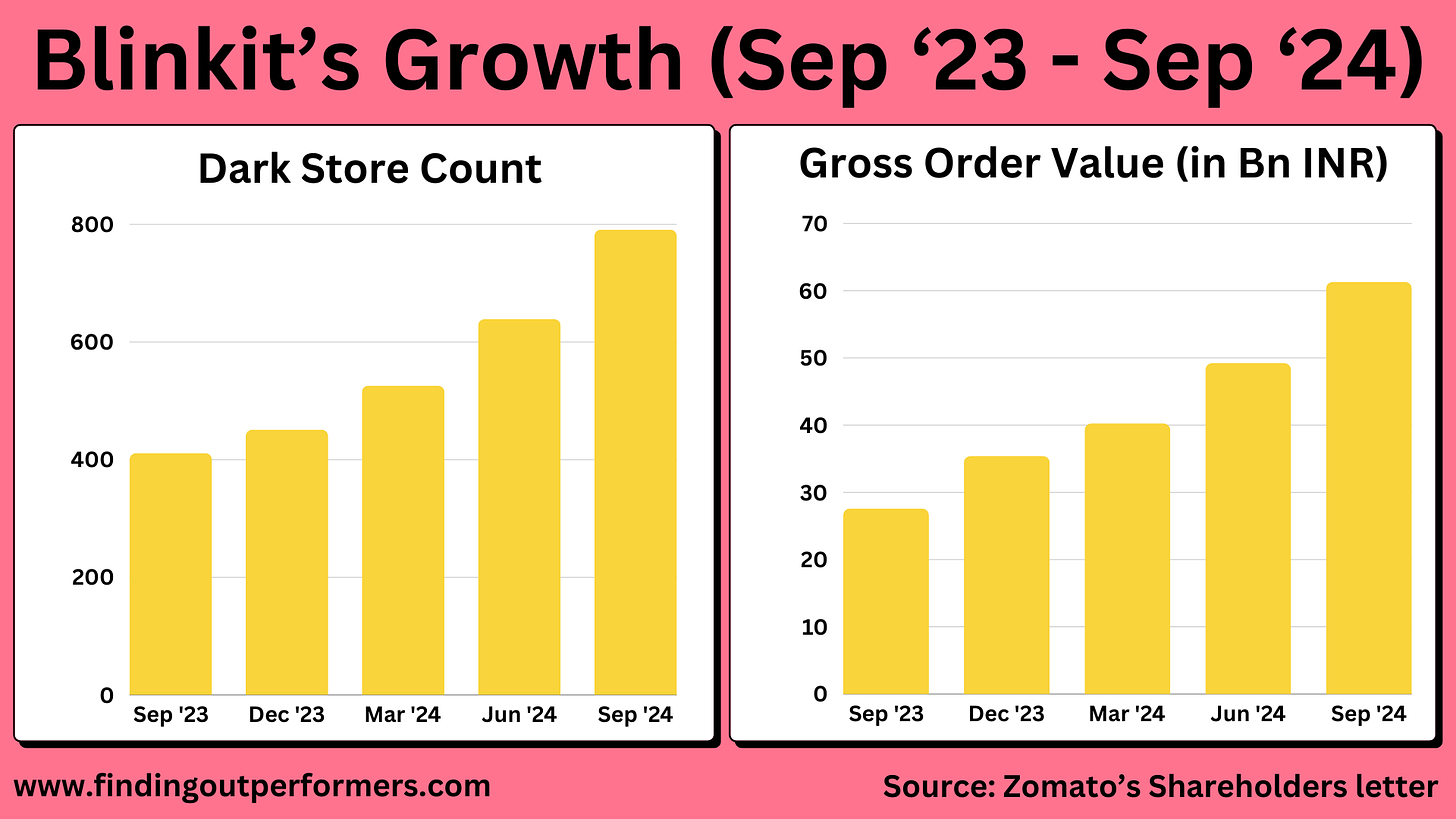
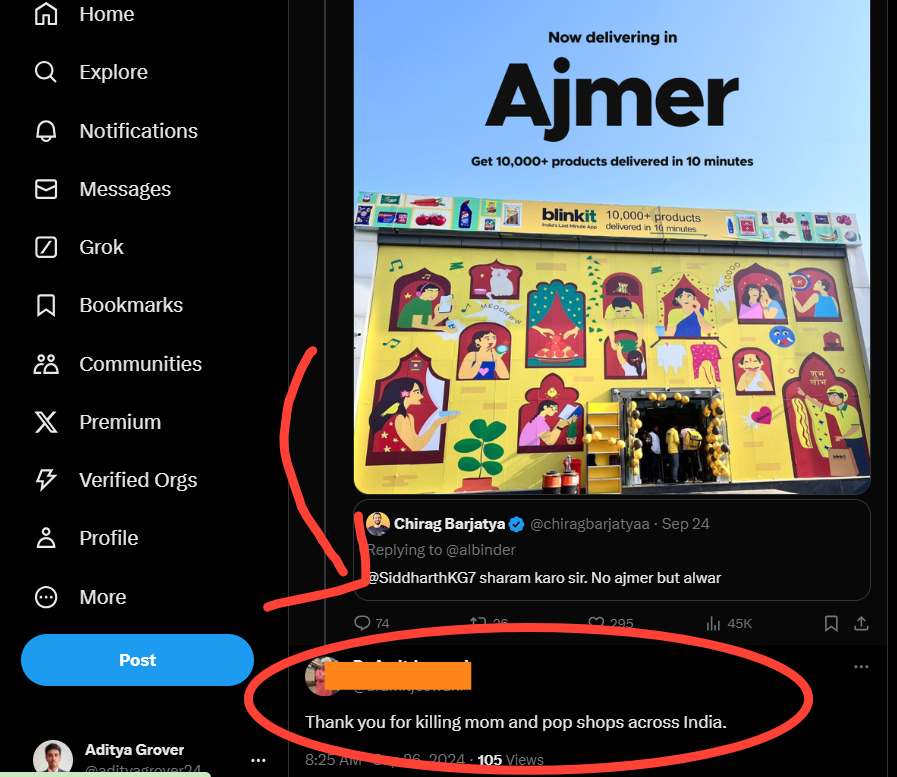
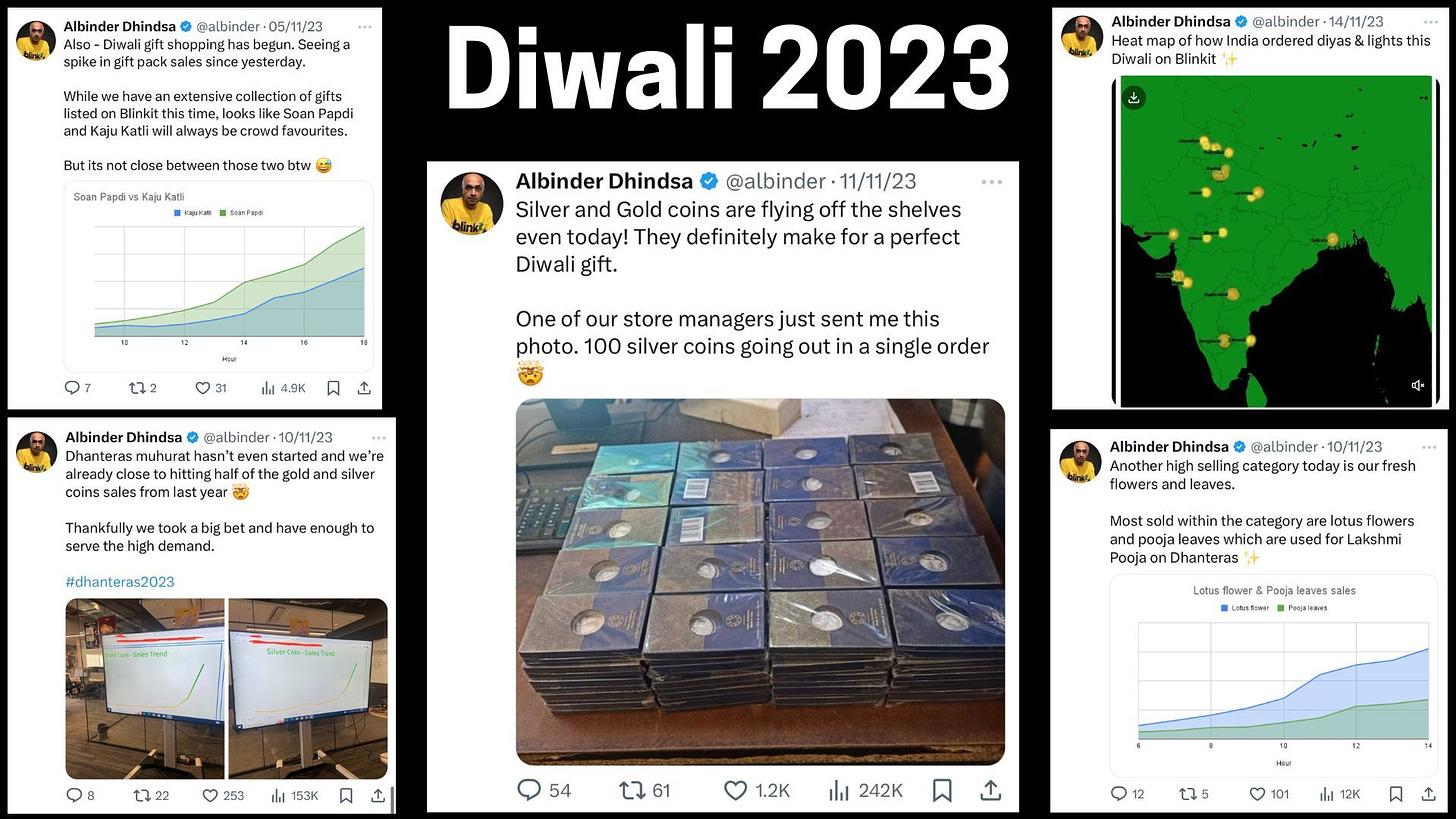
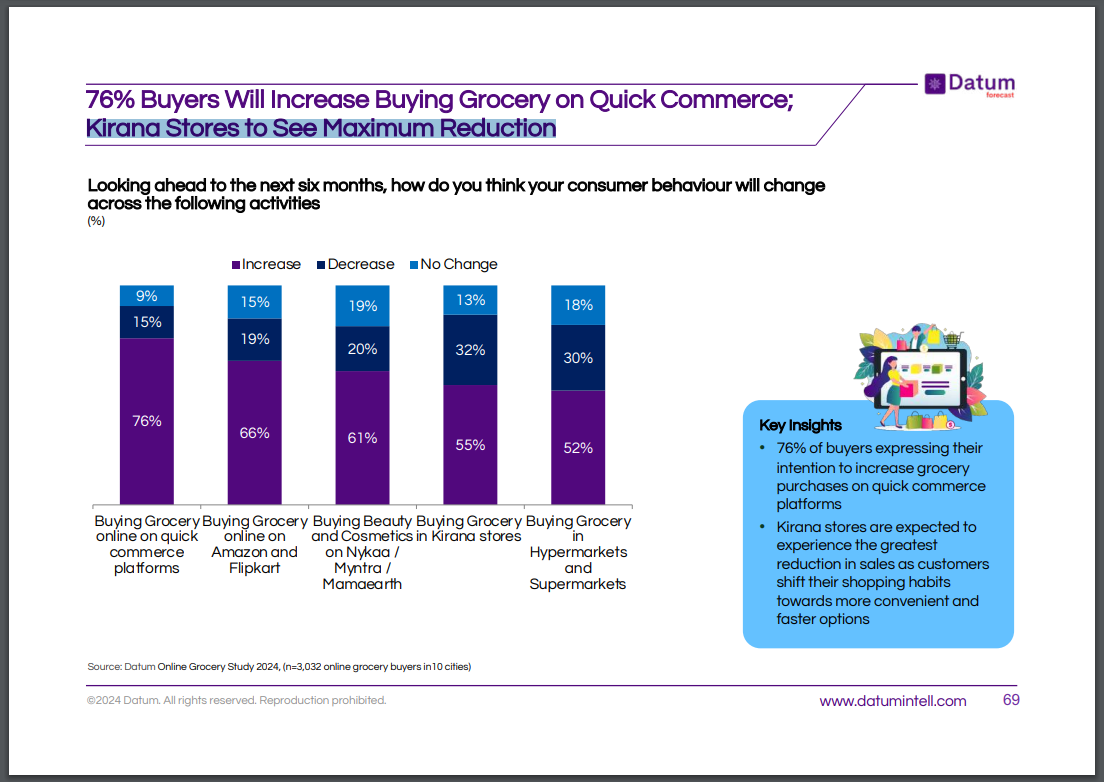
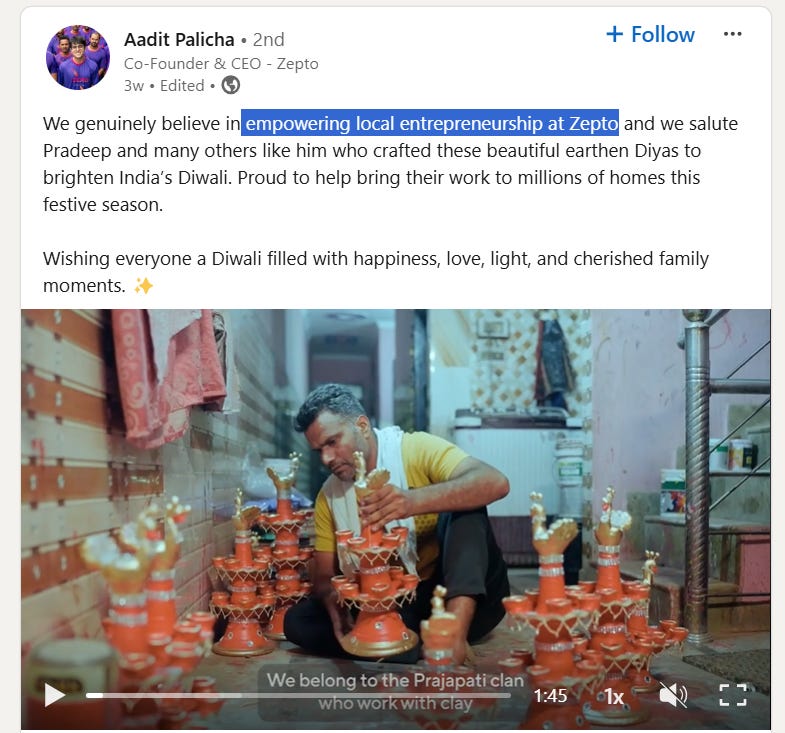
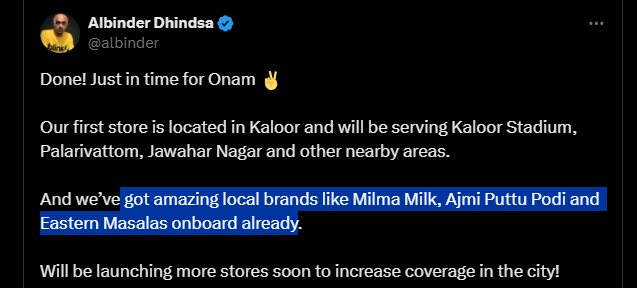
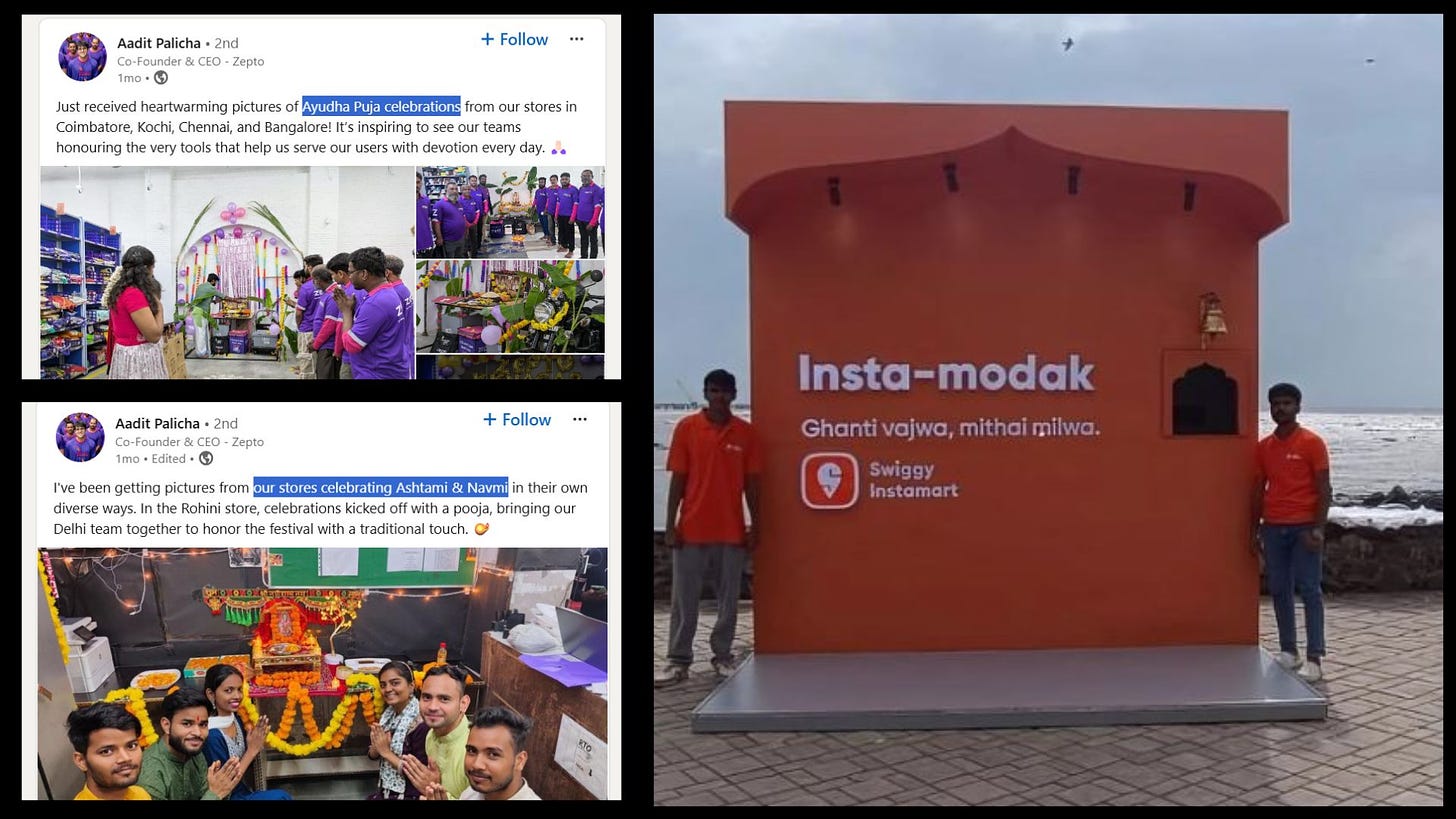
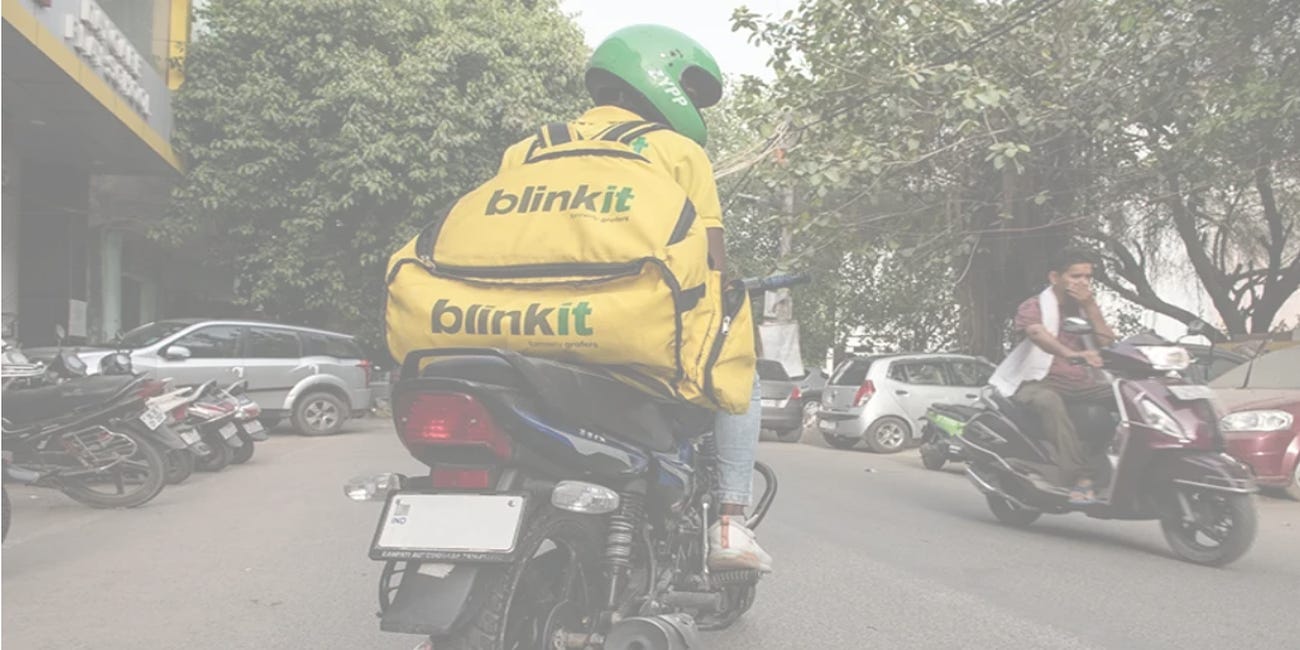




Nice commentary on E commerce keep it up 👍👍👍
Great blog 👍 Would like to understand if supermarkets are affected by the rise of Qcoms, considering Qcoms have already started to enter into different product segments - electronics, etc.